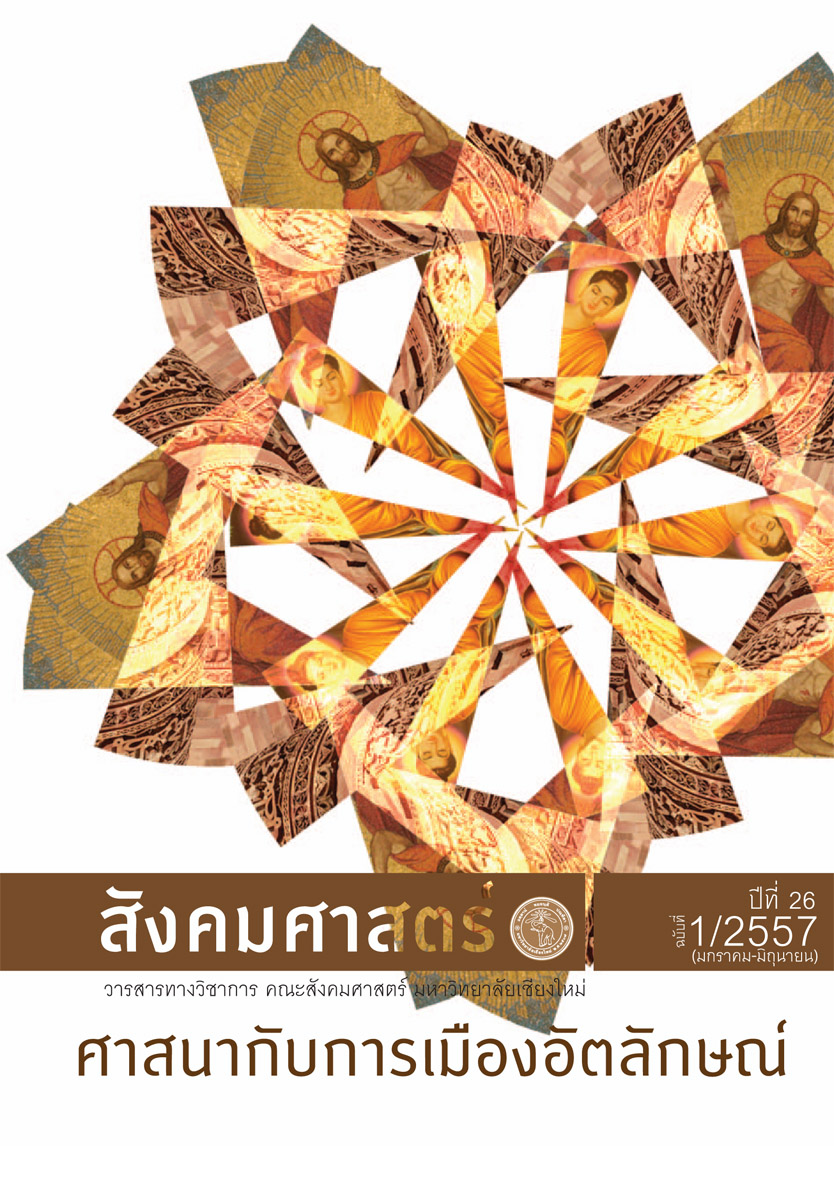The Trace of Otherness: "Chao Khao" Muslim and Identity Politics in the Process of Religious Conversion
Main Article Content
Abstract
This article studies the process of Muslimization among the hill tribe youth in Chiang Rai province of northern Thailand through the propagation of Islam of the Dawah group. This work aims to find out how the hill tribe youth make use of their own ethnic identity in order to respond to and negotiate with these propagation strategies. This thesis finds out that ethnic identity is an important strategy of religious propagation and the Muslimization process can be seen in rules and disciplines which govern the body of the hill tribe youth. As for the spiritual side of the Muslimization process, these youth have been trained to realize their own Muslim identity, and some face internal conflicts between different identities that he or she personally defines him- or herself. The result can be regarded as an awkward cultural patchwork or a final peaceful subjectivation of these youth. Muslimization is a gradual process whereby the youth slowly immerse themselves in Islamic principles and practices. These youth have a different development process and also manifest his or her own Muslim identity in different ways. This fact indicates that the youth are alert and active agents who always select elements of religious ideology offered to them. Their responses and challenges reflect their own thoughts and choices, and the attempts to maintain their ethnic identity is a part of cultural and identity negotiation in the process of religious conversion. It also depicts these youth as active agents who make use of their fluid identity to protect themselves from being marginalized and to display the complex power relations between religion and ethnicity in the process of religious conversion which can be seen both in the individual and macro levels.
Article Details
All written articles published on Journal of Social Sciences is its author’s opinion which is not belonged to Faculty of Social Sciences, Chiang Mai University or is not in a responsibility of the journal’s editorial committee’s members.


